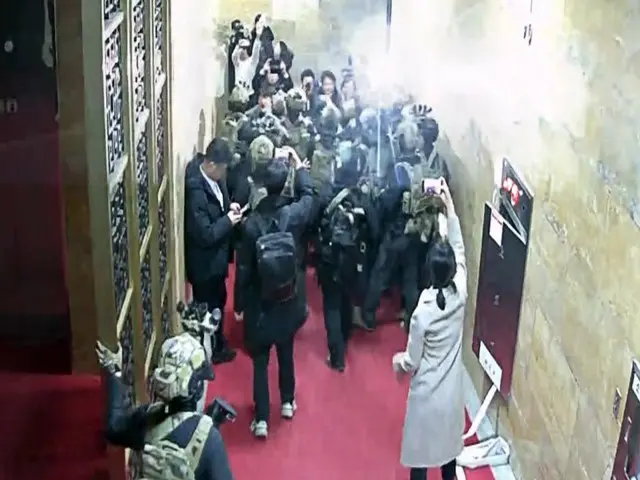The article detailed not only the circumstances of the military's intrusion into the National Diet building, but also the confrontation between citizens and the police. Some Japanese media outlets have commented that the military's actions are like a coup, with some commenting from the Ministry of Foreign Affairs
NHK also quoted a source as saying, "Some Japanese people who had been planning to travel to South Korea have canceled their trips."
Around midnight on the 4th, the Japanese Embassy in Korea warned Japanese people living in Korea that they were in confusion.
An emergency email was sent out, urging people to avoid dangerous areas as there is a risk of unpredictable incidents, such as collisions.
Since the beginning of this year, the number of Japanese people traveling to Korea and the number of foreign tourists visiting Korea has increased every year.
The number of tourists has been increasing every month, but due to the incomprehensible measures taken by the governing authority, South Korea, a cultural powerhouse, developed country, and the leading Asian country in terms of GDP per capita, has suddenly become a "dangerous country to travel to."
Korean travel agencies are trying to convince their overseas partners that "it was nothing. In fact, it has gotten even better," but the truth is that they are in a "headache."
The U.S. State Department said that even after the announcement of the lifting of martial law, "the situation remains fluid" and that "we must anticipate potential unrest within South Korea. There is a risk that peaceful demonstrations could turn into confrontations and escalate into violence."
It took more than 50 years to dispel the image that "South Korea is dangerous because North Korea is nearby."
Koreans are very embarrassed by the current situation where they are looked upon in a misunderstood way by foreigners, which is different from reality.
2024/12/04 16:30 KST
Copyrights(C) Herald wowkorea.jp 96

